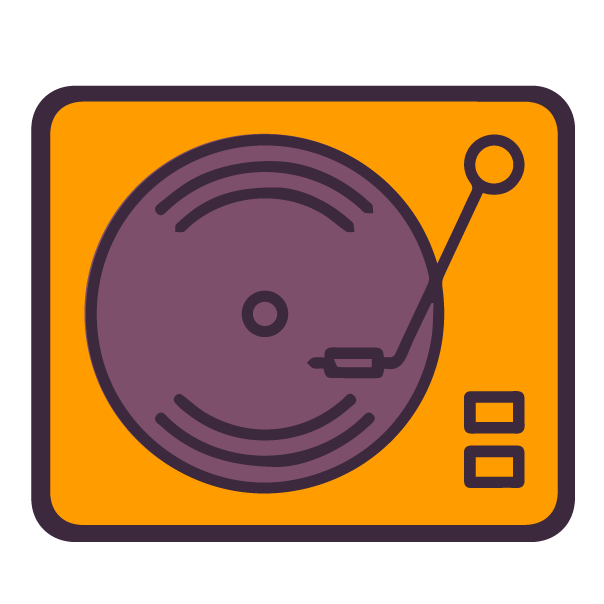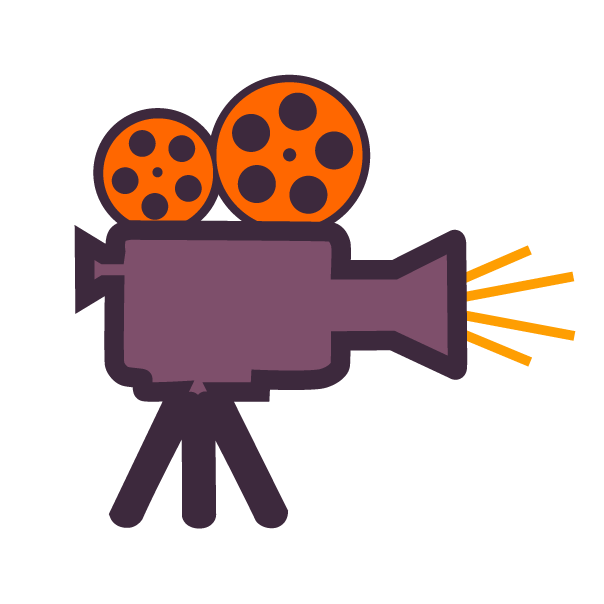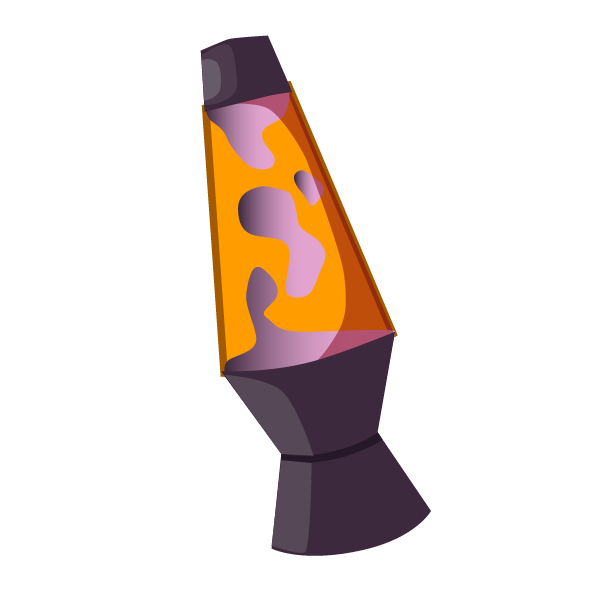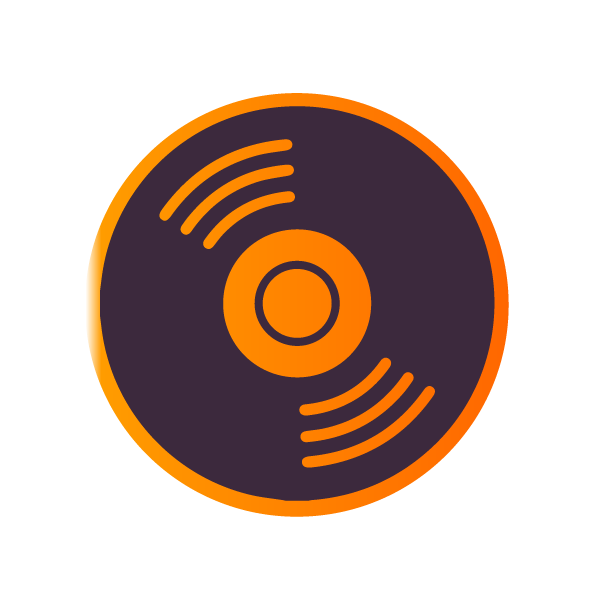By Calli Ferguson | September 14, 2022

Meet Girl Gang: the supportive creative studio whose live events seriously rock. When Nicole Kimchik and Hakisha Dissanayake were coming up in NYU’s music business program and facing similar frustrations with the industry, they bonded in the bathroom line at a mutual friend’s New York City gig. It was a conversation that would spark their brand, Girl Gang, which today supports and connects an entire network of creatives.
We got to catch up with Girl Gang’s co-founders late this summer to talk about their journey, the inspiring work they do, and issues within male-dominated industries that make communities like theirs so important. So without further adieu groovers, here’s Nicole and Hakisha on how their pre-pandemic idea for an all female lineup, “the girl gang show,” became a full-fledged creative studio helping to bridge creatives across disciplines.
Can you start by sharing the story of how you guys came up with the idea for Girl Gang?
We were both looking to tap into connecting with female or non binary musicians, you know? And talent in that realm. Because I feel like–at least in the spaces we were a part of– it was incredibly male-dominated. So that was something right off the bat, we wanted to change about the spaces we were trying to get into. Going off that conversation we’d had a couple of times, we knew we wanted to throw this all female lineup party.
Nicole: We kind of wanted to explore this idea of doing something more than just a standard concert and trying to support a variety of different creatives that would fall under the umbrella theme.
The first show that we were going for was an all-female lineup. We had five [acts] lined up that were going to kick off the summer season, all in different venues around New York. And [as for] the marketing that was going on…we were just two college kids booking these gigs and people were like: Who are you? What? What’s going on?
As we were pitching the first show, we started calling it this “girl gang” show. And it was actually supposed to be on 4/20 in 2020. Obviously, the pandemic had started so the show didn’t end up happening. But, we had created a little bit of buzz around this name. And we had this Instagram. We had all these creatives that we were supposed to be working with all summer in a way that we weren’t gonna be able to do the ways that we traditionally knew how. We kind of had to take a moment during the pandemic and that first Zoom semester.
We looked around at the people that we were in rooms with, and half the creatives were like, “Wow! Look at all this free time, I’m starting all these new hobbies and things I’m dabbling in. This is amazing.” And then the other half of the room was like, “I’m severely depressed… How are you surviving?”
So we just started DMing people. Everyone was at home across the country. We just started checking in and asking questions about what people were up to. And Girl Gang started out as a space just to support what people were doing at home…to try to create maybe a little inspiration for those people who are feeling stuck, maybe create some new connections, maybe allow people to collaborate with creatives that they may not have across the country. And that’s where we initially started as we were waiting out the pandemic, and then it sort of just snowballed to what we do today.
Hakisha: As we were growing our community, a couple of people started reaching out to us for design help or things like that. And that sort helped us evolve into a creative studio. We were–for the first time–connecting creatives with opportunities that would help them grow their resumes and build experience.
Nicole: That became part of our overall mission. We’re here to support. We want to highlight and shed light on creatives who might not be getting light shone on them. So we typically cater to underrepresented, marginalized creatives. We are based in New York, but we do work with creatives all across the world.
We’re essentially now…we call ourselves a “creative studio,” but we’re community-based. So clients come to us with things like if they need to tie the loose end for a project, or they need to build a missing piece, or they want to start something from the ground up. [Then] Shika and I will look at our community, build out a team from the creatives there, and then work with the client and see the project all the way through. So it’s definitely about providing those opportunities and putting people in spaces to grow professionally.
Our biggest thing is: When we rise, everyone rises. So we want to continue to grow people’s networks and create opportunities. That’s our ultimate goal.
Amazing. So you were both coming up in the music business space. You were in school– probably like interning and everything…Can you speak to some of the specific frustrations that you faced? Or maybe noticed women and marginalized people facing in those spaces that led you to feel like something like Girl Gang was needed in the music world and the creative world?
Hakisha: Yeah, I mean…I feel like even the concept of interning is a privilege for most people, you know? I remember until senior year at least at NYU, all my internships were unpaid. And being able to allocate up to 30 hours of your time in school to work for someone for free is a privilege that a lot of people don’t even talk about.
Nicole: It’s something that exists mostly in the entertainment industry and music industry. We had this expectation of: We all have to do it. You have to grind.
Hakisha: I remember when we were trying to figure out how to allocate projects to people in our community, a big thing for us was being paid for your time and for your work. That’s very important to us because a lot of people can’t afford to not be paid.
Nicole: And as women, we don’t talk about money. We don’t talk about contracts. It’s just not something that we grew up learning. So I think that was a big thing for us as we were starting out and seeing how little knowledge we had of what budgeting looked like for certain projects. Also, as we learn, we want to make sure that people who are also dabbling in these spaces are learning how to budget themselves too. Because you are your own business.
Once you graduate, it’s hard to make friends. It’s just like a weird space to be in and we’re all trying to grow our networks. And we’re all trying to improve professionally. But we’re also trying to still have fun. Like, how do we do that all at the same time when we don’t have any facilitation? So that’s another important part of our space: to really make sure people’s networks are growing.
Hakisha: And also taking a chance on people. Even for small projects. I remember in college, people would be like, “Well, have you done this before?” Or “How many times have you done this?” This ties back to what we were talking about with applying to jobs and needing an incredible amount of experience. But I feel like even in college that was happening on some level. And now something that’s really important to me, personally, is even if you don’t have experience…Let’s give it a shot! You know? And see how it goes, because you have to start somewhere.
When you guys first had that spark of inspiration to host an all female show…What was the intention, with all these frustrations considered? Was it to give these artists shows? Or to create a space for them where they felt nurtured? Maybe both?
Nicole: I think a little bit of both. Probably more of the latter. It was more so to like…why are all the spaces that we can see these badass artists in so centered around men? All the venues that we were working at were run by men. If you’re in the hip-hop scene, you can’t typically get on a bill unless you’re with a bigger male artist. There’s just a lot of ingrained, problematic stuff that’s kind of misogynistic. And we were feeling more comfortable with the spaces that we were providing. We weren’t just tossing somebody into a situation where we didn’t know what was going to happen. We had full autonomy. It was exciting.
So you planned the show, and then COVID hit. What was the first event that you actually got to host live?
Nicole: The Cool Kids Party was the first one.
Hakisha: Yeah so Nicole and I love anything live, to be honest. That’s something we bonded over from the get go. Specifically DIY live…Like putting it together like in a week, figuring it out, having this weird space for it. But I remember we just wanted to throw a party for the summer. So we found a friend’s boyfriend’s rooftop.
Nicole: This was also when things were opening up in 2021. And we didn’t want to book a venue because we didn’t know what was gonna happen. It was like: Let’s just find a rooftop, and it has to be free.
Hakisha: We whipped up a poster randomly on Photoshop in like five minutes. We posted it on our Instagram once. It just said, “Cool Kids Only” with the address and “BYOB.” And we got a generator because the rooftop had no power.
Nicole: Everything we tried to do we had to troubleshoot. We were going up to one rooftop and then at the last minute it got switched and then we figured out that that rooftop didn’t have any outlet. Then we figured out there were no bathrooms and the whole rigamarole…It was crazy.
Hakisha: It was crazy. We got a generator, we got a tent in case it rained, we called the dellies up [to ask] can we use your bathroom? People trickled in at the beginning and then before you know it, we had hundreds of people.
Nicole: We had a lineup of six DJs. They were all queer women. And we had like 500 to 600 people. We had to kick people off the roof at like 4am.
But going into it we were like, What’s going to happen? We just went through a pandemic. We’re a little scared to reach out to a venue we don’t want to lose money on on something like this…But we feel like people need to let off some steam.
Hakisha: And we’d never had people show up for a live event for us before that. That was the first time Nicole and I were gonna put our names on it and invite people to the thing.
Nicole: Yeah we felt like, We’ve been doing this for the last year. People who have been following us on Instagram are here. People we’ve been working with are here…That’s crazy! People showed up, that’s nuts!
So I think that kind of gave us the push to keep dabbling into the live spaces. And we’ve definitely been doing a lot more of that. I think small businesses are eager to try to create unique experiences for their customers, and we’re all about that. So yeah, that was kind of the first “I think we can do this.” Even without everything presented in front of us like a venue might have, we pulled it together.
Do you guys have any more events coming up?
Nicole: Yes. We actually have an event that we just announced a little ‘save the date’ for. It’s on September 24. It’s called “Plentitude NYC,” and it is basically a sustainable drag fashion show. It’s going to be hosted at Sovereign in Brooklyn. It’s one of those DIY venues in the warehouse-y district. There’s going to be food. There’s going to be a little sustainable marketplace with a lot of different community resources.
The overall theme of this event is unlocking abundance within your own communities and trying to get rid of the scarcity mindset that we all typically tend to live in, in terms of capitalism and consumerism. There are resources right in front of us that we just need to be exposed to.
We are partnering with another community called Planet Queer. They are a queer DJ space that does late night stuff. And their shtick is every event they do, they do have drag performances and drag artists host. So it’s always a fun, late night experience. So we’re doing that together.
Also for the fashion show aspect of the event… we’re having five fashion designers who are local to New York, and five drag performers that are also around the city, and they’re going to collaborate on creating pieces together. We actually pulled most of the clothing for the pieces from a clothing swap that we did a few weeks ago that was all community-based. People brought clothes out, we did an exchange, and those pieces are being gifted to the designers. So there’s a lot of upcycling and resource-based sustainable thinking going into that.
That sounds so exciting! How cool that it’s all locals. Is there anything else you guys want to share?
Nicole: If anyone is interested in joining the community, we have a little signup form that’s in the bio of our Instagram. We typically try to hop on the phone with everybody who signs up to be a part of the community so we can hear what you’re about and we can figure out ways to connect you and help you grow within our community. So that’s kind of the first place to start.
Also come to Sovereign on September 24 at 5pm! Hopefully we’ll see people there.

Connect with Girl Gang on Instagram, Spotify, and their website.








